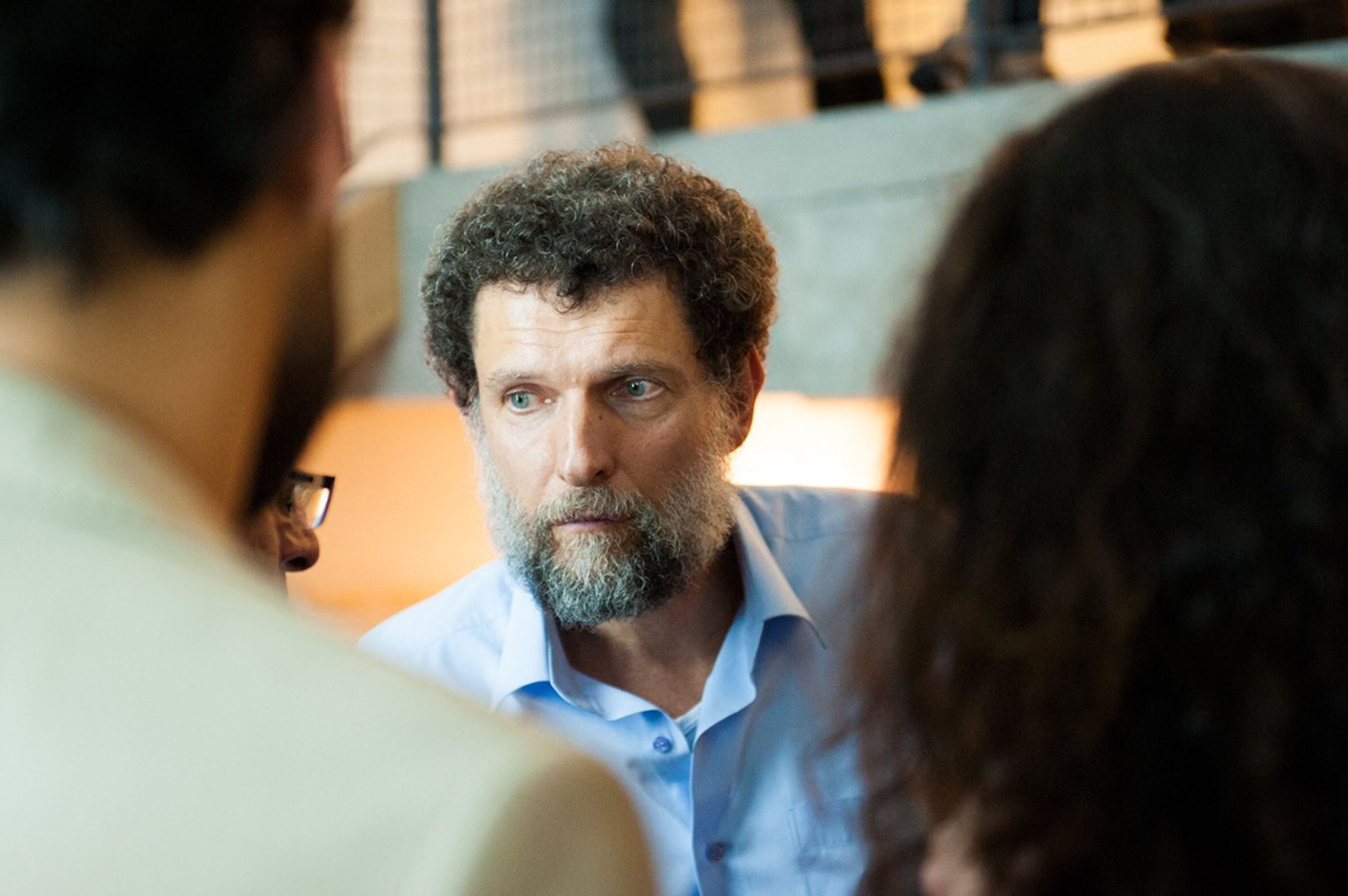Erdogan’s Turkey censured by Council of Europe for jailing activist Osman Kavala
For only the second time in 72 years, the council launched ‘infringement’ procedures

A major human rights organisation that oversees and monitors democracy and the rule of law across 47 nations in Europe voted Friday to begin to punish Turkey for its failure to release a prominent philanthropist and activist from prison.
It was only the second time in the Council of Europe’s 72-year history that it launched what it describes as “infringement” procedures against a member of the treaty organisation. It came after the refusal of Turkish authorities to abide by a European Court of Human Rights ruling to free Osman Kavala, a major Turkish supporter of the arts and left-leaning political causes, who has been imprisoned without being convicted of any crime since 2017.
“By failing to ensure the applicant’s immediate release, the committee considers that Turkey is refusing to abide by the court’s final judgment in this case,” said a press release issued by the Council’s committee of ministers, which is composed of member states’ foreign ministers and permanent envoys. Between 32 and 35 out of 47 nations voted against Turkey in balloting that is not public.
Turkey’s foreign minister on Thursday had warned the Council of Europe to avoid escalating the dispute over Kavala, describing any action as “interference” in the country’s judiciary.
As a member state, Turkey is subject to the European Court’s binding judgements. The vote Friday means that Turkey’s compliance will come under review during a 2 February hearing, the press release said.
It remains unclear what if any punishments the Council or the court could impose on Turkey, an early member of the organisation. Turkish opposition lawmaker, Unal Cevikoz, of the centre-left People’s Republican Party (CHP), was quoted in a local media outlet warning that the proceedings would negatively affect Turkey’s relations with the Council of Europe and “may lead to the expulsion of our country.”
The only previous time the Court began such infringement procedures was against Azerbaijan in 2017 for refusing to abide by an order to release opposition leader Ilgar Mammadov. Baku backed down. He was released from prison the following year and formally acquitted in 2020.
Turkey also faces accusations of refusing to abide by Council of Europe rulings in the case of Selahattin Demirtas, the charismatic leader of the Kurdish-led leftist People’s Democratic Party (HDP). He has been in prison since 2016 on what critics describe as specious charges.
The Strasbourg-based Council of Europe cooperates on legal matters with and has a “strategic partnership” with the European Union, which could potentially impose economic or other sanctions on Turkey over the Kavala matter.
Human rights advocates applauded the Council’s vote. “Turkey’s failure to ensure the immediate release of Osman Kavala and end his politically motivated prosecution is an unacceptable breach of the country’s human rights obligations,” said Amnesty International’s Europe Director Nils Muiznieks in a statement.
But it remains doubtful whether the Turkish government will release Kavala, whose continued detention without conviction has baffled observers.
The 64-year-old businessman and activist appears to have drawn the personal animosity of Turkey’s President Recep Tayyip Erdogan, who has derided him as “Soros scum,” in reference to funding he has received from American billionaire philanthropist George Soros’ democracy-promotion charity.
“Many of Kavala’s friends, here and abroad, have been pleading on his behalf and the shared sense is that Erdogan is personally involved in any decisions regarding him, and he’s hellbent on the issue,” said one Ankara insider with knowledge of failed back-channel efforts to secure Kavala’s release.
In October, Mr Erdogan threatened to expel ambassadors from 10 countries including the United States and France for issuing a statement calling for Mr Kavala’s release. Financial analysts say that the dispute over Mr Kavala has contributed to questions about the rule of law in the country and has been a factor in the recent dramatic crash of the Turkish lira.

“The example of lawless and arbitrary management we have given to the world is clear, and unfortunately it is obvious that this situation will deepen our economic crisis,” Mustafa Yeneroglu, a member of the opposition Deva Party, said in a statement. “The Osman Kavala case has become a symbol of unlawfulness, where the judiciary is used as a stick to intimidate civil society.”
Kavala was first accused of attempting to overthrow the government of Turkey by backing the rowdy 2013 anti-government protests focused on Mr Erdogan’s attempts to revamp Istanbul’s Gezi Park.
After a court acquitted him in the Gezi Park case, he was then accused of complicity in a failed 2016 coup attempt which was allegedly organised by a religious movement that is vehemently hostile to Mr Kavala’s brand of secular leftist politics. His next court hearing is scheduled for 17 January.
Join our commenting forum
Join thought-provoking conversations, follow other Independent readers and see their replies
Comments
Bookmark popover
Removed from bookmarks